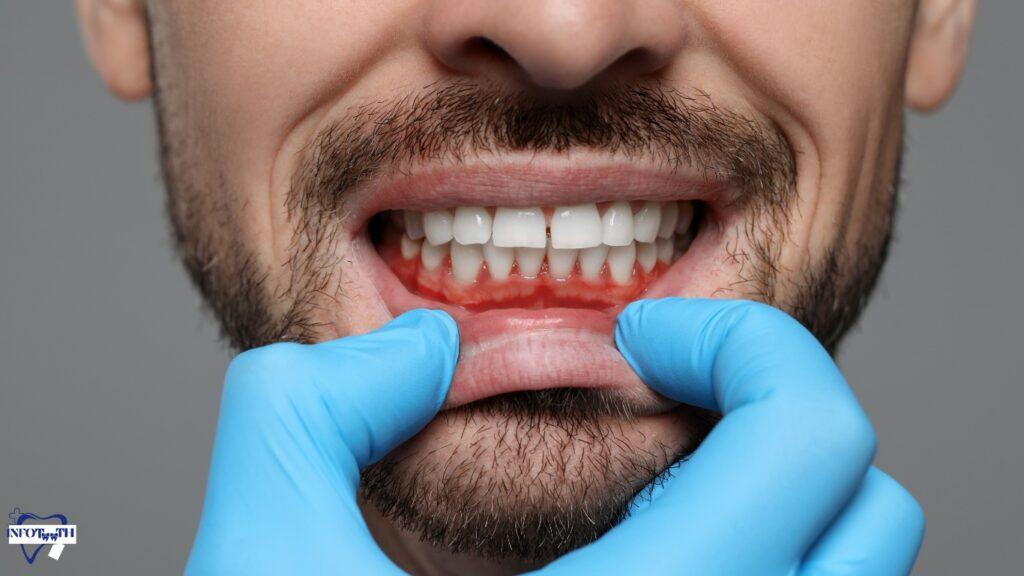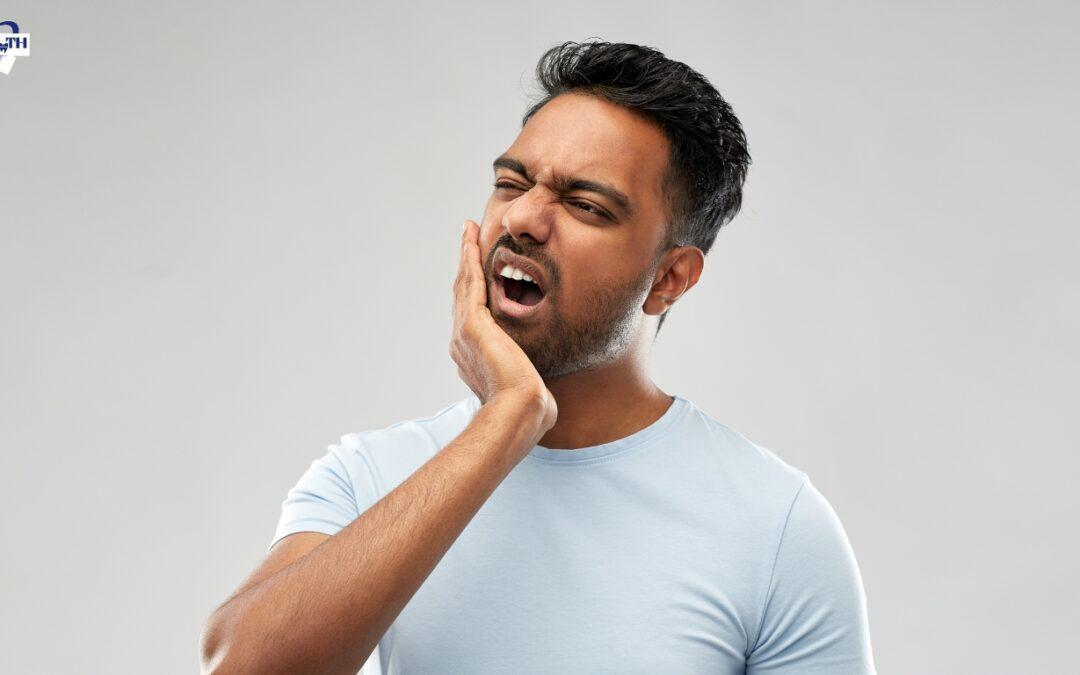Welcome to our latest blog post, where we explore a surprising health query: Can allergies make your teeth hurt? Many of us are familiar with the typical symptoms of allergies, such as sneezing, itching, and watery eyes. However, the impact of allergies can extend beyond these common signs. In this post, we delve into how allergies can affect your dental health, causing discomfort and pain in your teeth, and what you can do to alleviate this unexpected symptom. Please note that while we strive to provide accurate and up-to-date information, this blog post is not a substitute for professional medical advice.
Table of Contents
We encourage you to consult with a healthcare provider for personalized guidance. Stay tuned as we uncover the connection!
Can Allergies Make Your Teeth Hurt or Not?
“Can allergies make your teeth hurt?” It might sound unlikely, but the connection between allergies and dental pain is indeed plausible due to several physiological responses. When allergies strike, the body’s immune system responds by releasing histamines, which are chemicals that cause inflammation. This inflammation primarily affects nasal passages but can also extend to the sinus area.
The sinuses, located just above and below your eyes and behind your nose, can become swollen during allergic reactions. This swelling can put pressure on the surrounding areas, including the roots of your teeth, particularly your upper molars. This pressure can manifest as a dull ache or sharp pain in your teeth, mimicking symptoms of dental issues such as cavities, gum disease, or even a crooked teeth.
It’s crucial to recognize dental pain as potentially allergy-related if it coincides with other allergy symptoms and seasonal patterns. This awareness can prompt you to seek appropriate treatment and alleviate the discomfort. However, consultation with a healthcare provider is always recommended to rule out other dental problems.
What Are The Symptoms of Allergies?
Allergies manifest through a range of symptoms, which can vary significantly depending on the type of allergen and the individual’s sensitivity. Common “Can allergies make your teeth hurt?” include pollen, dust mites, pet dander, certain foods, and certain medications. The body reacts to these allergens by releasing histamines, triggering symptoms that can affect the skin, respiratory system, eyes, and even the gastrointestinal tract. Understanding these symptoms and potential allergens is crucial for effective management and treatment.
- Respiratory Symptoms: These are among the most common signs of allergies and include sneezing, nasal congestion, runny nose, and coughing. Asthma symptoms such as wheezing, shortness of breath, and chest tightness may also occur, especially if the allergic reaction is severe or the individual has pre-existing respiratory issues.
- Skin Reactions: Allergic reactions often cause skin issues such as hives, which are red, itchy welts; eczema, which results in flaky, itchy, and red skin; and contact dermatitis, which causes a red, itchy rash. These symptoms typically occur when the skin comes into direct contact with an allergen, like certain metals, fragrances, or plant substances.

- Ocular Symptoms: Allergies frequently affect the eyes, leading to symptoms such as redness, itchiness, and watery discharge. This condition is often referred to as allergic conjunctivitis.
- Gastrointestinal Symptoms: While less common, some individuals may experience gastrointestinal issues due to allergies. These symptoms can include nausea, vomiting, diarrhea, and abdominal pain, especially in food allergies or more severe reactions like anaphylaxis.
- Anaphylaxis: “Can allergies make your teeth hurt?” This is a severe, potentially life-threatening allergic reaction that requires immediate medical attention. Symptoms of anaphylaxis include difficulty breathing, swelling of the throat and mouth, significant drops in blood pressure, dizziness, and fainting.
Link Between Allergies and Dental Pain
The link between allergies and dental pain is a compelling example of how interconnected the human body’s systems are. Allergies, which affect millions worldwide, typically manifest through symptoms such as sneezing, itching, and nasal congestion. “Can allergies make your teeth hurt?” However, the lesser-known impact of allergies can extend to causing significant dental pain, a phenomenon that might surprise those suffering from it. Understanding this link can empower you to manage your symptoms more effectively and seek appropriate treatment.
When an allergic reaction occurs, the immune system releases histamines to combat the perceived threat, leading to various inflammatory responses. One such response involves the sinuses, air-filled spaces in the skull located around the nasal cavity and eyes. During an allergic episode, these sinuses can become inflamed and swollen, leading to increased sinus pressure.
“Can allergies make your teeth hurt?” This sinus pressure is where the connection to dental pain comes in. The roots of the upper teeth are located very close to the sinus cavities, particularly the maxillary sinuses. When these sinuses swell, they can exert pressure on the tooth roots in the upper jaw. This pressure can lead to sensations that range from a dull ache to acute pain, often mistaken for other dental issues like cavities or root infections.
Understanding this link is crucial, especially during peak allergy seasons or for those with persistent allergic reactions. Symptoms of sinus-related tooth pain typically include pain that intensifies when bending over or during sudden temperature changes, such as moving from a warm room to the cold outdoors.
Sinus Pressure and Teeth Pain
Sinus pressure and tooth pain are closely linked due to the proximity of the sinuses to the dental arches, especially the upper teeth. “Can allergies make your teeth hurt?” Pain and sinuses are air-filled cavities located within the bones of the face and skull, surrounding the nasal passages. The largest of these, the maxillary sinuses, are situated just above the upper jaw. When these sinuses become inflamed or infected—a condition known as sinusitis infection—the resulting pressure can have direct effects on dental health.
This pressure is felt most acutely in the upper molars, as these teeth are closest to the maxillary sinuses. When the sinuses swell, they can exert significant pressure on the roots of these teeth or the surrounding nerve pathways. The sensation can range from a dull ache to sharp, intense pain, which can be mistaken for tooth decay, gum disease, or other dental issues.
“Can allergies make your teeth hurt?” The pain typically worsens with movements that increase sinus pressure, such as bending over or lying down. Other associated symptoms can include a stuffy nose, facial tenderness, headache, and a decrease in the ability to smell.
Treatment for sinus-induced dental pain focuses primarily on alleviating the sinus pressure. This may involve the use of decongestants, antihistamines, or nasal corticosteroid sprays, which help reduce inflammation and clear sinus blockages. In cases where an infection causes sinusitis, antibiotics may be necessary. Additionally, over-the-counter pain relievers can help manage dental pain while the underlying allergy is being treated.
Can Allergies Make Your Gums Hurt?
“Can allergies make your teeth hurt?” Yes, allergies can indeed cause your gums to hurt. This discomfort is typically not a direct result of the allergy itself but rather a side effect of the symptoms and responses associated with allergic reactions.
Allergies often lead to sinus congestion and inflammation. When the sinuses become inflamed, particularly the maxillary sinuses located just above the upper jaw, the pressure can radiate downward, affecting the gums and causing discomfort or pain. This is similar to how sinus pressure can cause toothache, as previously described.

Moreover, some individuals may experience dry mouth as a result of antihistamines and other allergy medications. Saliva is essential for keeping the mouth clean and reducing the risk of gum disease. A dry mouth can lead to an increase in bacteria and plaque, which can irritate the gums and lead to swelling and pain.
Can Allergies Cause Tooth And Jaw Pain?
“Can allergies make your teeth hurt?” Yes, allergies can indeed cause tooth and jaw pain, though indirectly. The primary link between allergies and pain in the teeth and jaw is sinus pressure. Allergies often lead to sinusitis, an inflammation of the sinus cavities caused by an allergic reaction. This inflammation can cause the sinuses to swell, creating pressure throughout the sinus area.
The maxillary sinuses, located directly above the upper teeth, are particularly relevant here. When these sinuses swell, the pressure can be transmitted to the upper jaw and teeth, especially the molars. This pressure can result in a feeling of a dull ache or even sharp pain in the teeth, which can be mistaken for dental issues like cavities or gum disease.
Furthermore, the jaw pain associated with allergies can also stem from sinus pressure. As the sinus cavities swell, they can cause discomfort that radiates to the jaw area, leading to symptoms that might resemble those of TMJ disorders (temporomandibular joint disorders), such as pain in the jaw, clicking, or difficulty moving the jaw.
Additionally, “Can allergies make your teeth hurt?” The congestion and constant nasal dripping typical in allergic reactions can lead to throat irritation and muscle strain in the neck and jaw areas, compounding the discomfort.
What Home Remedies Should Adopt?
“Can allergies make your teeth hurt?” If you’re experiencing tooth pain due to allergies, there are several home remedies you can try to alleviate discomfort. These methods primarily aim to reduce sinus pressure and inflammation, which are often the underlying causes of the pain:
- Stay Hydrated: Drinking plenty of fluids can help thin the mucus in your sinuses, easing the pressure and reducing pain.
- Steam Inhalation: Breathing in steam can open up the nasal passages, decrease sinus pressure, and alleviate pain. You can do this by taking a hot shower or by leaning over a bowl of hot water with a towel over your head to trap the steam.
- Warm Compresses: Applying a warm compress to the face, particularly over the sinus areas (around the nose, cheeks, and eyes), can help soothe sinus pressure and reduce pain in your teeth.
- Elevate Your Head: When sleeping, prop up your head with extra pillows. This can help prevent mucus from pooling in your sinuses, decreasing pressure and pain.
- Saline Nasal Sprays: Using saline nasal sprays or rinses can help clear out sinuses, reduce pressure, and potentially alleviate tooth pain.
- Avoid Allergy Triggers: Minimize exposure to allergens that trigger your symptoms. This could involve staying indoors on high pollen days, using air purifiers, or avoiding specific foods if your allergies are food-related.
- Herbal Remedies: Certain herbs, like eucalyptus and peppermint, have decongestant properties. They can be used in teas, essential oil diffusers, or inhalation therapies to help relieve sinus pressure.
Medical Treatments For Allergies If They Make Teeth Hurt?
“Can allergies make your teeth hurt?” If you’re experiencing tooth pain that you suspect is related to allergies, several medical treatments can help alleviate this symptom by addressing the underlying sinus issues. Here’s a breakdown of common strategies:

- Antihistamines: These medications reduce the release of histamine, a chemical that triggers allergy symptoms, including inflammation of the sinuses. By controlling histamine, antihistamines can minimize sinus pressure that might be causing tooth pain. “Can allergies make your teeth hurt?” This answer is explaining in “Decongestants“
- Decongestants: Available in both oral and nasal spray forms, decongestants help reduce swelling in the nasal passages and decrease sinus pressure. This can alleviate the pain that extends to the teeth. However, nasal sprays should not be used for more than a few days without consulting a doctor, as they can cause rebound congestion.
- Nasal Corticosteroids: These nasal sprays help reduce inflammation in the sinus area and are often used for longer-term allergy management. They can be highly effective in relieving sinus pressure and associated tooth pain over time.
- Saline Nasal Sprays: Regular use of saline sprays can help keep the nasal passages moist and clear of irritants, which helps reduce sinus pressure and pain.
- Allergy Shots (Immunotherapy): “Can allergies make your teeth hurt?” Yes, it is but for long-term relief, allergy shots can gradually decrease your sensitivity to allergens. While this treatment requires a significant time commitment, it can lead to lasting relief from severe or chronic sinus pressure and related dental pain.
- Pain Relievers: Over-the-counter pain relievers such as ibuprofen or acetaminophen can be used to manage the pain temporarily, although they do not treat the underlying allergy.
Conclusion:
Understanding that “Can allergies make your teeth hurt?” Allergies can indeed lead to tooth and jaw pain illuminates the interconnected nature of our body’s systems. Effective management of allergies not only alleviates traditional symptoms like sneezing and itching but also reduces less-known impacts like dental pain. By addressing the root cause—sinus pressure—through appropriate medical treatments, those affected can find significant relief and improve their overall quality of life.
FAQs:
Q: Can allergies directly damage teeth?
A: No, allergies do not directly damage teeth, but the sinus pressure associated with allergic reactions can cause tooth pain.
Q: Are certain times of the year worse for allergy-related tooth pain?
A: Yes, allergy-related tooth pain can be more severe during peak allergy seasons, typically spring and fall, when pollen counts are high.
Q: Can children experience allergy-related tooth pain?
A: Yes, children can also experience tooth pain related to sinus pressure from allergies, similar to adults.
Q: How can I differentiate between allergy-related tooth pain and other dental issues?
A: Allergy-related tooth pain often coincides with other allergy symptoms and is typically felt in the upper teeth. Consult a dentist to rule out other causes.
Q: Can treating allergies improve tooth pain immediately?
A: Treating allergies can reduce tooth pain caused by sinus pressure, but it may take some time for the medication to reduce inflammation and relieve symptoms.

